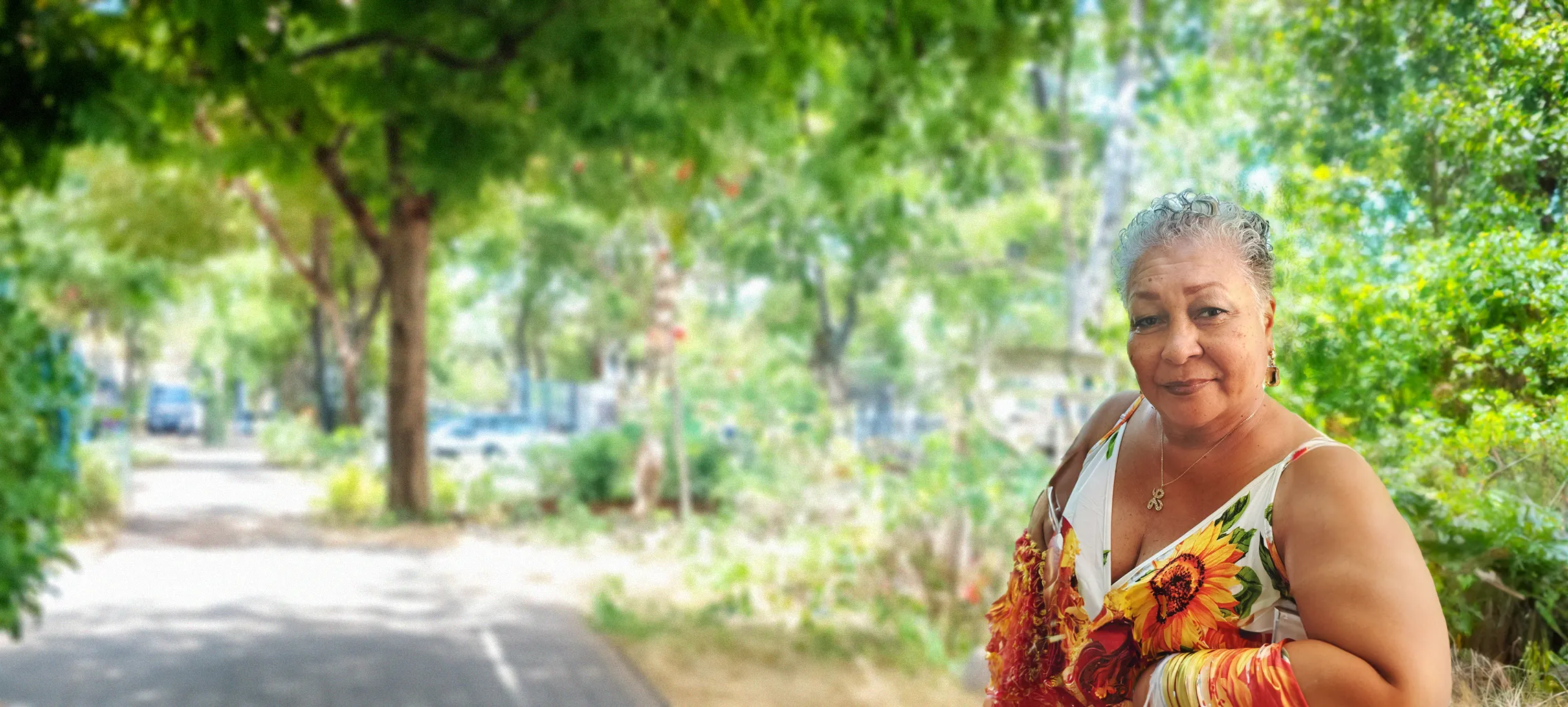

Meet Liat
Why Housing Justice is Also About Accessibility
“I’ve always been a renter. When I first moved here, I was getting a divorce and my son was a toddler at the time. Through the years, you started to see it wasn’t as affordable as when I first got here.”
For nearly 39 years, Liat has called Vallejo home. The decision to move to Solano County was influenced by its affordability. At the time, renting made sense to her over homeownership. But after nearly four decades in the area, she is rethinking that choice.
Initially, the idea of buying a house seemed daunting. Liat had a federal job with what she described as a “good salary.” She still had to consider the overall cost of living, finding it much more affordable to rent in Vallejo. Still, cost wasn’t the only barrier to homeownership – it was the maintenance. With little to no access to information on how to best organize finances to account for this, the prospect of handling unforeseen expenses was overwhelming, especially during her divorce.
Time and again, when her landlords decided to sell, Liat faced the harsh realities of a Bay Area housing market that was pricing more of its residents out.
“Buying a house wasn’t even in the spectrum of thought during those years. There were a lot of people that said, ‘We can get you into a house.’ And I’m like, okay, but what if the roof needs fixing? You know, who does that?”
Liat preferred renting. Her housing situation remained relatively stable for years, thanks to landlords who kept rents reasonable in exchange for her maintaining those properties. Still, despite recognizing the financial investments she was making in maintaining her rental homes, it worked for her – until it didn’t.
Time and again, when her landlords decided to sell, Liat faced the harsh realities of a Bay Area housing market that was pricing more of its residents out.
“I was comfortable for a long time [thinking] ‘I’m not part of that housing-insecure group of people.’ That was my first real look at the real economy and how much more I was going to have to pay to move in the real world. It took me months of research, looking, and going to talk to people to find a place to live.”
She finally did find a place through a friend. But within a year and a half, her friend went through a divorce, and she was forced to move again. In the last four years alone, Liat has had to uproot her life and move twice. She notes that housing for seniors is always a concern since safety and quiet are essential. The instability she has experienced recently has been a source of constant stress. It’s an anxiety that has affected her health, leading to chest pains and a trip to the emergency room.
I’ve been fortunate in that I went for 20-plus years where I didn’t have to worry about it so much. But now, I can see it. If [there were] more systems in place to help people like me, back then, to navigate that whole system. then maybe I’d be a homeowner today. I just didn’t have the access. It makes a difference for people to understand that they’re paying the same amount in your rent as if you bought a house. And those types of conversations need to happen more often.
Despite these challenges, Liat continues to advocate for housing justice, working with organizations like the Vallejo Housing Justice Coalition and as a United Way Bay Area (UWBA) Ambassador to have the hard conversations, get people to understand the realities of their situations, and push for more affordable housing solutions.
As Liat contemplates the future, she considers moving out of the country to places like Mexico or Costa Rica, where she believes she’ll find more affordable living conditions. It’s a decision that isn’t made lightly and one that involves leaving behind decades of community and friendships. Yet, the need for a stable, affordable home continues to drive her, highlighting the urgent need for systemic change in housing policies and how we see housing as a whole.
That’s the thing, you know, when I talk to people about moving away, they’re just [thinking about] me finding a new place to live, but they’re not looking at [it] as me being able to afford to stay here comfortably. You know it’s not by choice, that I’m going to move away – it is because I can’t afford to stay here. But I’ve got to be able to live. As much work as I’ve done in the community, people are always surprised that I don’t own a house here, but there’s plenty of us who are like that, housing insecure.
And it could be anybody. You know, there’s the stigma of being old; the stigma of being poor. But it happens to all kinds of people, even to seniors who have money. It could be anybody that you work with, that’s sitting next to you, or that you see in the neighborhood all the time. So there shouldn’t be any stigma attached to people who are experiencing housing insecurity. It’s everybody’s job now to make sure that there’s equity in housing and that everybody who wants to stay in Vallejo can stay in Vallejo. It means looking at it from the human perspective. It affects all of us eventually, and we all have to think about those things.